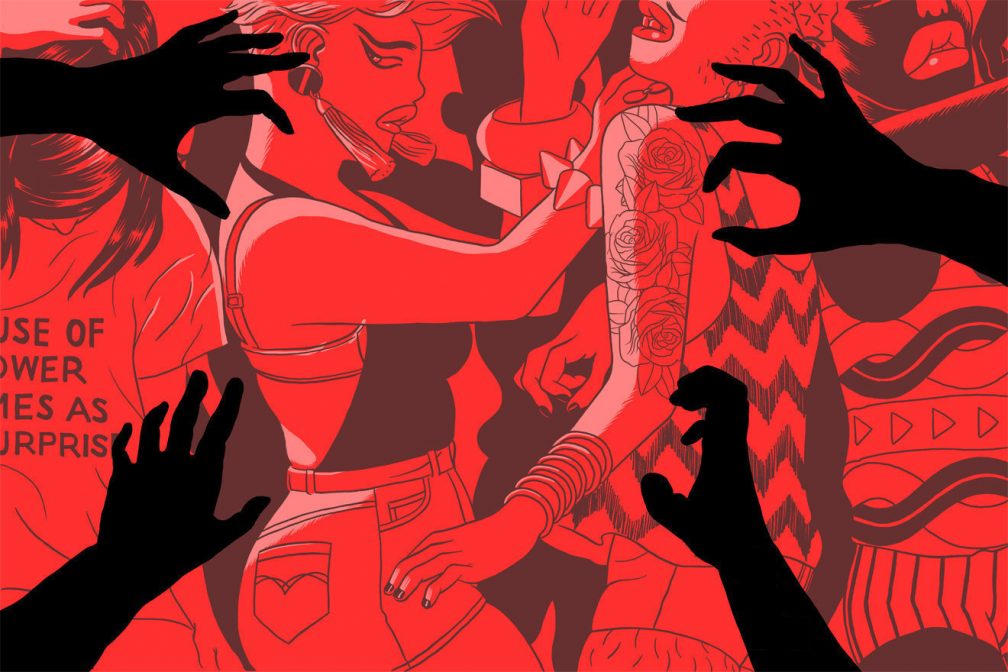
What to do if you get sexually harassed in a nightclub
The scene has acknowledged that sexual harassment is a problem, but what are the practical solutions?
As my Culture Box incident shows, telling security isn't an approach that's guaranteed to result in success. Many bouncers aren't trained in how to deal with sexual harassment, and may minimise or even deny it's going on. It’s important to be prepared in case things don’t go your way.
“I would say always take things up with venues first,” she answers. “If you feel like the situation wasn’t handled properly, reach out to management. Suggest they get in contact with the Good Night Out campaign and we can go and offer them training.”
If management is being unresponsive, van Kempen suggests calling the non-emergency police number and explaining what happened. “Confidently explain the situation to the police and say it’s not being dealt with.” This is especially worth doing if you’ve been the subject of racist, sexist or homophobic abuse: hate speech is a crime, and police do take it seriously. Police can request security footage from the club and trace the suspect if a crime has taken place. Even if there’s not enough evidence to convict, being contacted by police might scare potential creepers from doing it again.
Ultimately, throwing people out of bars is a temporary solution. What we really need to do is proactively shape a better, more inclusive clubbing environment for everyone, regardless of their race, gender identity or sexuality.
"We need to proactively shape a better, more inclusive clubbing environment for everyone"
Tweet this quote
Huge progress has been made in recent years, thanks in large part to pioneering anti-harassment campaigners and more progressive venue owners. Fabric has been a leader in the field, introducing a bespoke anti-harassment policy two years ago. Andy Peyton from the Colombo Group, behind venues like XOYO, The Nest, and Phonox, talks me through their sexual harassment protocols. He tells me there’s a citywide campaign to tackle venue-based harassment in the works.
“Everyone needs to take responsibility and I think that a change for the better is occurring,” Peyton says. “It’s the owner's’ responsibility to train their staff in matters of harassment, how to handle sexual violence in the venue if it occurs, techniques and responses to trauma caused by harassment and how to deal with someone who is harassing.” More than that, “Instilling a set of core values into all the people you hire is key to building a culture of safety within your venue.”
Alongside signs in the venue encouraging people to speak up if they experience harassment, Peyton explains that they will eject and ban harassers and in some cases call the police. But venue owners can have a disincentive from contacting police: The more incidents reported in your club, the more likely it is that authorities do an Operation Lenor and put your license up for review.


